Parental Narcissism: Best Narcissistic Parent Book to Read
If you grew up with a narcissistic parent or are dealing with parental narcissism in your life now, this book by bestselling author Karyl McBride, Ph.D., “Will the Drama Ever End?” is the book you need to read. Now. Quoted as “untangling and healing from the harmful effects of parental narcissism,” it’s like therapy on paper, the kind you get without leaving your house, and all for just the price of the book.
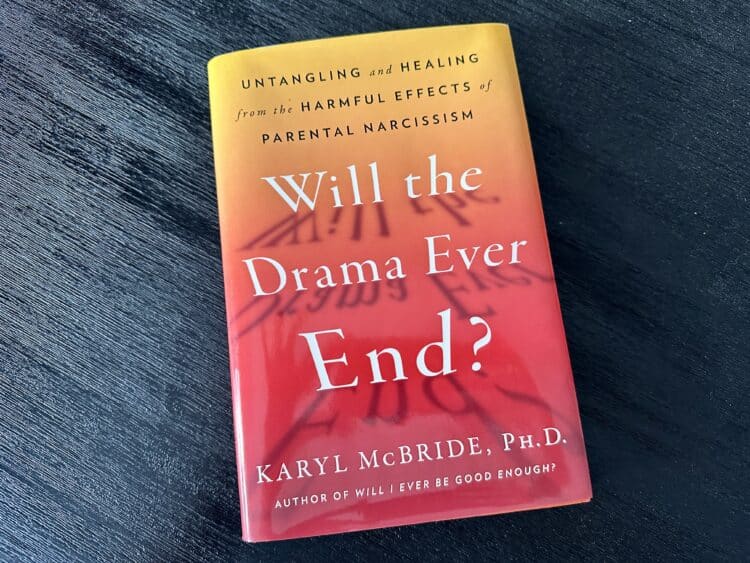
It took me until I was in midlife to realize the effects on me from being raised by a narcissist. Since then, I’ve been very open about it here on my blog. When we’re children, dealing with parental narcissism, we’re taught to be quiet, not speak up; we’re there to smile, to look sad or scared or whatever, to basically do as we’re told when anyone can see us. We’re told what our thoughts are. We’re told what we did and will do, and if any of it is wrong, it doesn’t matter because we are wrong, not the narcissist. They are never wrong. Problem is, being quiet just makes it worse, so I’ve chosen to share. I’ve heard from a lot of people over the past few years who have read my blog posts and thanked me for making them feel seen.
I’ll be honest: I was writing for myself at first. It wasn’t until later that I realized I was helping others by making them feel validated. We’re taught that it’s always us, we’re the problem, and our confidence and self-esteem takes a real beating. We’re insecure and always over-explaining ourselves or justifying. Once I learned that this was because of the way I was raised, I learned that a) I’m not alone, and b) I am responsible for how I am now, because I choose to not be that way anymore. I’m so glad that I saw others writing about it, and now I can pay that forward to others going through similar situations.
Someone asked me once if I went to therapy for this. The answer is no, and I have zero plans to do it. I am a mom of four kids, and I chose to parent by including the things that I didn’t get as a kid: frequent “I love you!”, lots of praise, trying to help them be confident, encouraging them to do and be what they want. Am I a perfect parent? Heck no, but my kids will always know I love them. I’ll never use them so I can be a martyr or get attention. I keep their things private rather than use them as a way for me to get attention. I’m an adult, they’re the kid, and I don’t unload my things on them to deal with. Parenting is learning as we go, making mistakes and trying to improve. And it’s so little about us parents, so if we try to make it about us, we’re going to have problems. Narcissistic parents make it ALL about them.
Instead of therapy, I work on myself on my own. I don’t immerse myself in the sadness about it, because that’s not the kind of person I am, nor do I want to be sad and introspective all the time. I do read books on narcissistic parents though, and this one by Dr. McBride is a game changer. It’s available on Amazon and while they sent me one to review, I’d have easily bought it on my own. (You can also follow her on Facebook to get updates and info from her directly.)
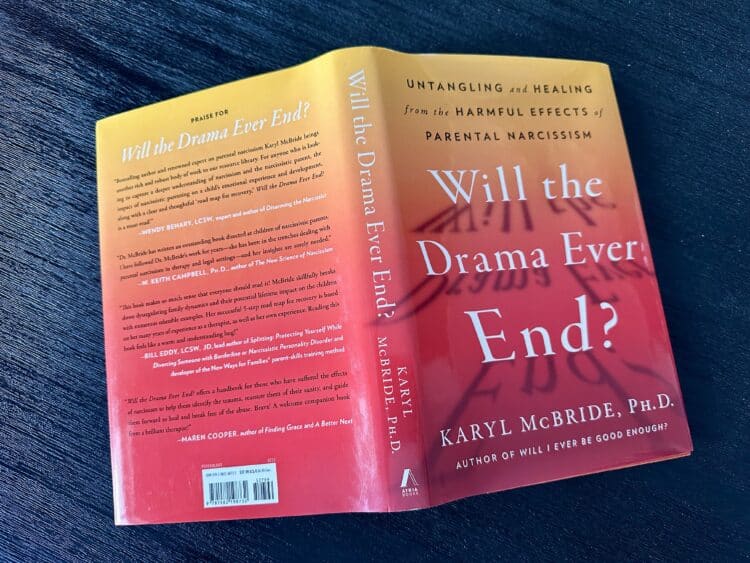
Dr. McBride wrote a book back in 2008 entitled “Will I Ever Be Good Enough?” It focused on daughters of narcissistic moms and it’s an amazing in-depth dive into life as a girl and then young woman whose life was devoid of the nurturing a mom is supposed to do for her kids. (If you haven’t read it, it’s another keeper.) This new book, “Will the Drama Ever End?” is focused on both sons and daughters, as men are just as frequently affected by parental narcissism but you just hear about it less.
Parental Narcissism: Best Narcissistic Parent Book to Read
The book is divided into three parts: The Narcissistic Family, The Impact of Narcissistic Parenting, and Healing and Breaking Free. Each of those parts has numerous chapters defining the roles and dynamics of everyone in the family, the spoken and unspoken rules, all of them tackling common things children of narcissistic parents deal with. Rewritten history, impaired trust, and how it all affects our development.
Be warned: there are a lot of examples from Dr. McBride’s clients, and sometimes they are like a gut punch. I did a lot of nodding as I read through the book, and a few times, it was like a flashback to something I’d forgotten. Read when you have time to fully process those memories.
If you have a partner who may not understand the trauma or feelings that can result of having a narcissistic mom or dad, give them this book, but highlight the chapters/phrases you want them to read. It’s a lot to digest as a whole, but in small doses, in Dr. McBride’s inclusive language will be your best friend in trying to share your experiences and feelings. We can already be defensive and hypersensitive to criticism, so use the book as a tool to
One particular section to share would be the list of 30 effects of being raised by a narcissistic parent. It’s a really good summary the myriad of ways a person could be shaped by a non-nurturing mom or dad.
If you’ve ever been in a relationship with someone who had a narcissist for a parent, you may have noticed some things, such as a fierce need for independence or a habit of heavily defending their needs or feelings. They also are likely easily upset by anything they feel is criticism. They usually trust too quickly, or it takes far too long; they either so badly want to trust someone to care for them properly, or they’re not going to risk being let down again so you really have to display that you’re going to be there for the long-haul to get them to trust.
Growing up, every mistake they actually made was magnified ten-fold by the parent, and even when they didn’t make mistakes, they were consistently told — verbally or by actions — that they just weren’t good enough. I was told I wasn’t pretty enough to be in a talent show and that I shouldn’t sing, I couldn’t take that from my sister because she sang so I couldn’t outshine her. (That went so far as me not being allowed to not like a specific food because that same sister already disliked it; I mean, she was eight years older than me, so she had time to claim everything, so I had to pick a second choice, even if it meant eating a food I despised.)
When I did make a mistake, it was shared at the dinner table for everyone else to laugh at; my sister went along with it, never once standing up for me that I remember. The Golden Child in a narcissistic family can’t risk that because they may lose their place of being included and not made fun of. This book also explains more about those family dynamics in a way that sounds less reactive than the actual child can tell you now. We sound like we’re overreacting but the book makes plain, easy sense of it all.
Unsure if your parent is a narcissistic, but you have suspicions? There’s a handy checklist on page 71 that provides you a list of questions to honestly answer for a better assessment.
Not every child from a narcissistic family will be able to identify with every role or example shared, of course, but you’ll still be able to glean a lot of information and reassurance within the pages of this book. When I spent some time reading the roles — narcissistic parent, enabler (the spouse, if they aren’t also narcissistic), golden child, scapegoat — and was still shocked by the similarities I found. I also found a few things that didn’t fit, such as the golden child wasn’t as revered and seen as “the perfect child” by my mom. My mom would complain about her and tell others bad stories about her as well, as long as it got my my attention. She didn’t think my sister’s voice was ‘that great,’ but she did love to cast dispersions that would create division. If we’d been close sisters, perhaps we’d have been able to help each other, but when you’re raised by comparisons and the parent needs someone to talk to while complaining about the other, it’s hard to be close.
Narcissistic parents often don’t have friends, so they speak to their kids as though they’re adults. Children of narcissists are often expected to step in as an adult and are responsible for assuaging feelings and calming the narcissist. It’s a horrible thing to put on a child. We’re supposed to be playing with friends and exploring our own interests, but instead, we’re patting our parent on the shoulder as she cries about her hurt feelings when we don’t say happy birthday first thing in the morning or we don’t praise her dinner enough. Oh the GUILT…it’s overwhelming and so hard to explain properly to anyone who wasn’t there.
And when they face problems with someone outside of the house? We’re their ear then, too. We’re supposed to not do our homework or do the dishes later at night so we can listen. The things I heard as a nine-year-old! I’ve had to work so hard to block a few years of my life.
Narcissists are also queens and kings of being petty. When they can’t verbally put you back in your place, they will strike out with petty actions to be sure you know, and as a kid, that may mean ignoring you when you hand out cookies to everyone else’s kid but you don’t get one, as one example. It could mean serving dinner, putting only “healthy” things on your plate because you’re a size seven and not a size five, or somehow running out of a part of the meal because “you didn’t wash the dishes, so I don’t have any for you.” (Narc parents often don’t like to do things around the house; that’s a scapegoat’s job, so you can be in trouble if the house doesn’t look perfect instead of it being their fault. “Donna was at her friend’s house and didn’t dust today! That girl!” The reality was that I probably had dusted the day before and I was at band practice and hadn’t yet come home from school.)
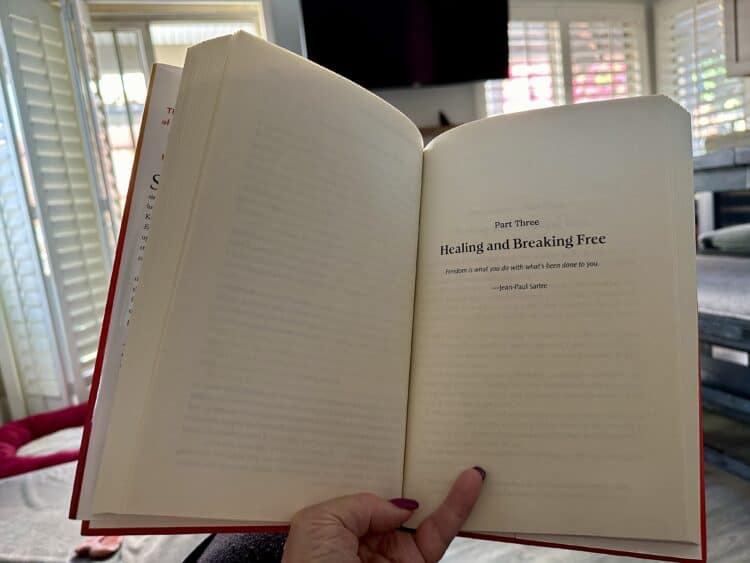
Whatever you do with this book, do not skip section three. It is essentially a workbook on healing and breaking free, putting you through the steps to acknowledge, proces, and move on from the things done to you by the parent. It’s an invaluable section. Don’t be fooled though, it’s a bit hard at times. I haven’t finished it yet. It’s WORK. It’s a good form of work, but it’s work nonetheless. Some of it, I can’t do. It references photos your childhood. I have one. GC took them all and won’t part with any, but honestly, I’m okay with that. Fighting over property isn’t my thing anyway, but to fight over things that should inherently be mine? Hard pass, I’m not taking that bait….so I’ll do the exercise another way.
I find myself reading and stopping. Memories hit. One that was hard was when McBride shares an example from a client whose mom had given away her wedding dress in a display of extreme pettiness. My mom gave away my engagement and wedding rings after my husband died. When we’d become engaged, they didn’t like “that tiny ring” he’d given me. We were young! I wanted out of the house, so did he, and we weren’t into a rock that we had to pay on. They forced us to get a new ring (“You live under MY ROOF right now!”) and they exchanged the ring we’d purchased. Six months later, when he died, I went into the military. When I came home and went to look at them, I learned she’d returned them all. “But I got you these earrings in the exchange!” They were a little tiny speck of a diamond, not at all what I wanted nor needed. I don’t think I ever wore them, they represented so much ugliness to me. She, however, got a gorgeous diamond necklace.
As an adult, I’ve gone no contact with the golden child, and my mom passed almost 30 years ago. It’s sad to not have had the ‘normal family’ that so many people have. I missed out on having truly excited family when I had kids. My dad was always there, and happy for us, but he had his own things going on to deal with. I didn’t get the family in the waiting room, beyond my dad. I didn’t get the showers or the OMG YOU’RE HAVING A BABY that you see others experience. I didn’t get the “Congratulations!” when I got a promotion; I got sly jabs or passive-aggressive comments meant to dismiss or demean. I wish I’d had the loving family, but some people are incapable, and I had to realize it’s not me or anything I’ve done or even can do. Some people are just happy being bitter and petty and won’t allow for anyone to come between them and their deep seated issues.
As an adult, I’ve learned to celebrate my wins on my own. My good things weren’t celebrated growing up, even when I went above and beyond. My friends ask me “Why didn’t you tell me?” Because I keep things to myself. I don’t give others the opportunity to poo on my parade. It also means I miss out on the support they want to provide, so it’s a work in progress.
Going no contact was a necessity for me. I’d given it all I could, and there was never any give in return. Decades of trying and having it work…for just a little while at a time, as long as rules were followed and adequate attention was paid. It slowly ate at me though. I’d answer the phone on my birthday, or another important day we were celebrating in the house, get a quick “happy birthday, gotta tell you about how xxx died!” or some other dramatic moment that really wasn’t, and when I didn’t respond properly, I’d get an email telling me what I did wrong. It was like childhood all over again, my Mom 2.0. This time though, I had a choice, I didn’t have to live with the person nor tolerate it.
As my husband loves to remind me, “You’re a grownass woman!” He also was very glad when I came to the decision to be done. In fact, it was actually his suggestion. “Be done.” (He said more, but I won’t print that here.) Having that support is everything. Narcissists are so misled and myopic, they honestly believe that everyone takes their side, everyone believes what they’re saying, and that everyone will listen to them over even their own spouse or best friends. Ah, little do they know how untrue that is, but I no longer have to worry about it.
Find Dr. McBride’s book on Amazon here. (That’s an affiliate link, as my sidebar and note above mentions.) It’s currently $15.49, though Amazon prices can go up and down a little. It’s also available as an audiobook. It’s an incredible book. She has nailed what it’s like and worded it in a way I’ve seen no one else do. It’s so helpful. Validating. Encouraging. Inspiring. It gets us. How often can we say that?

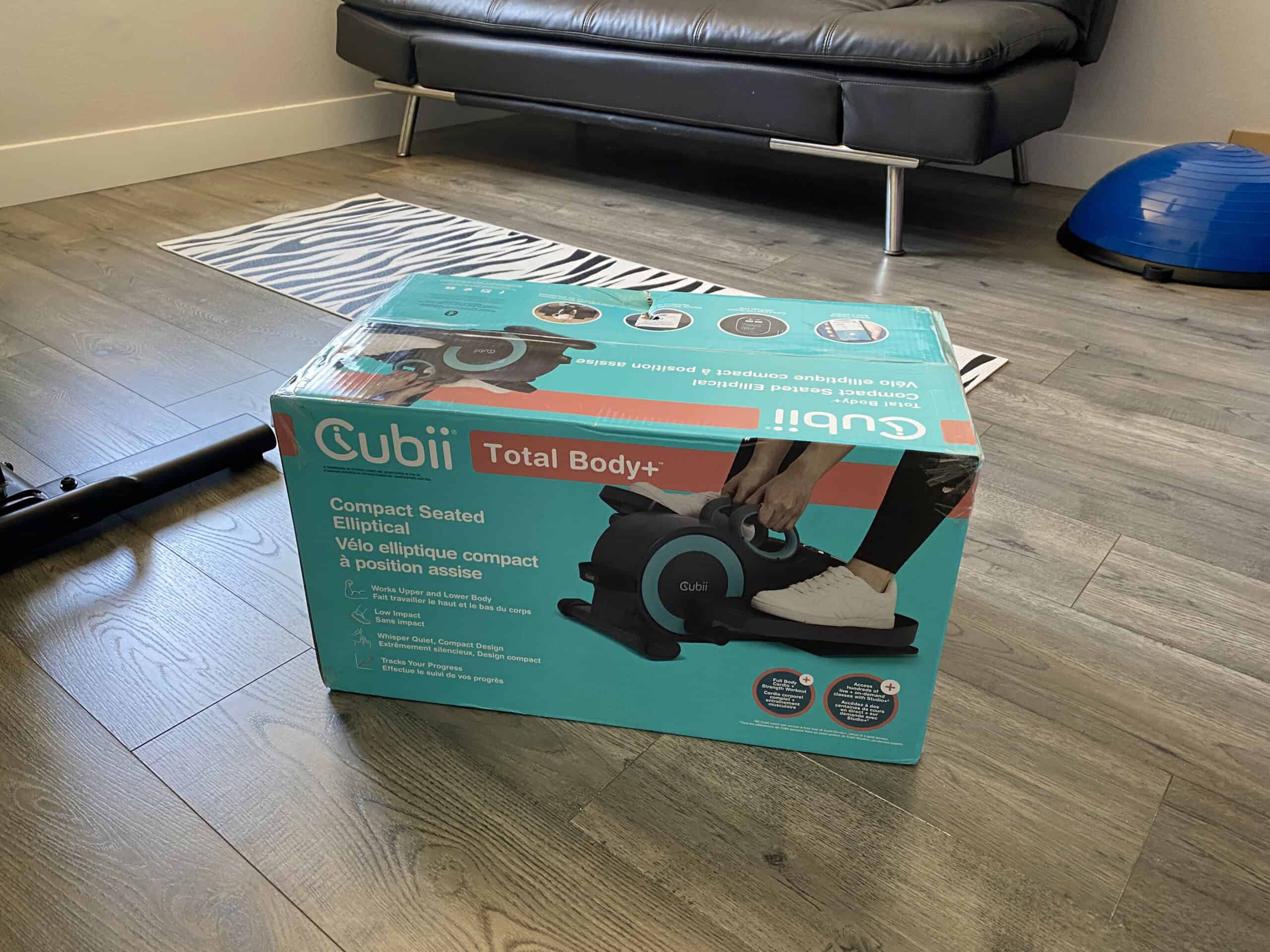
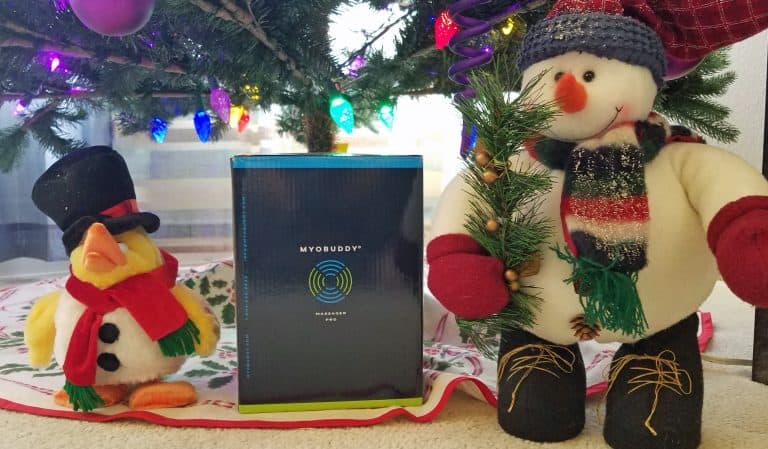
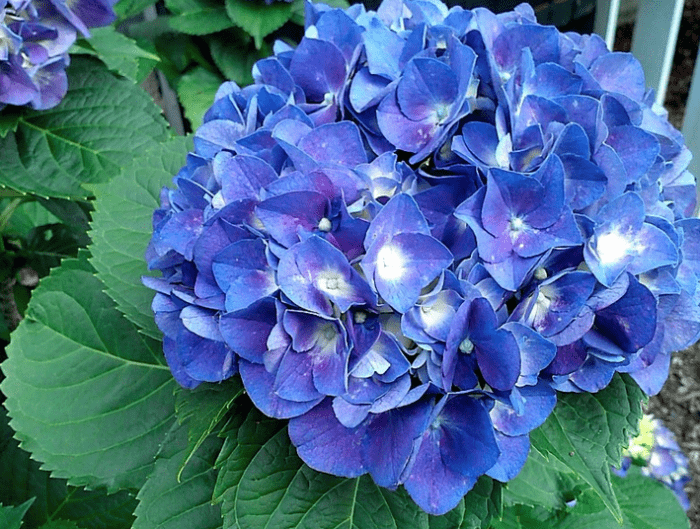

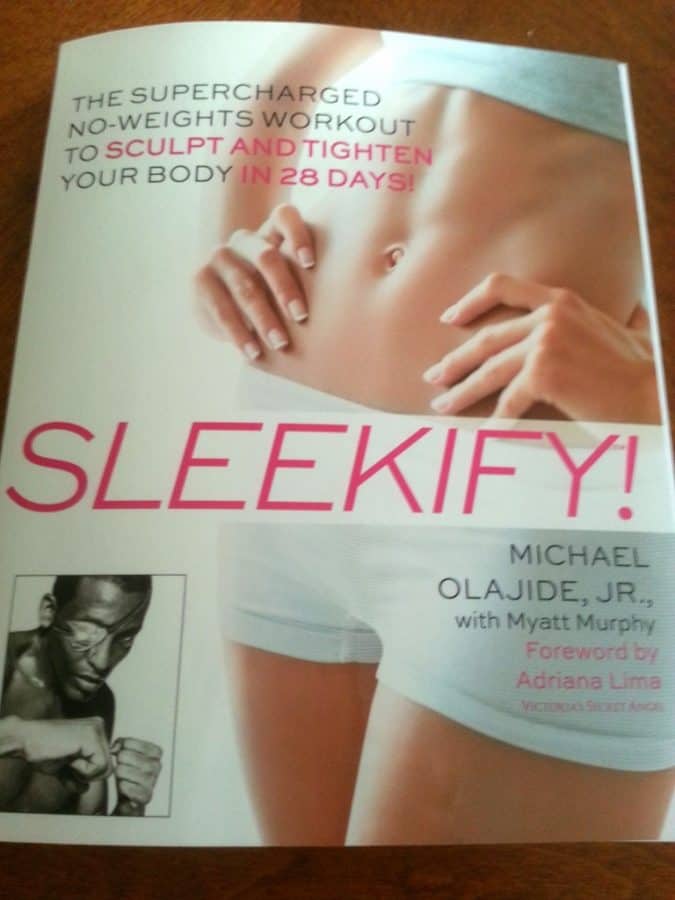
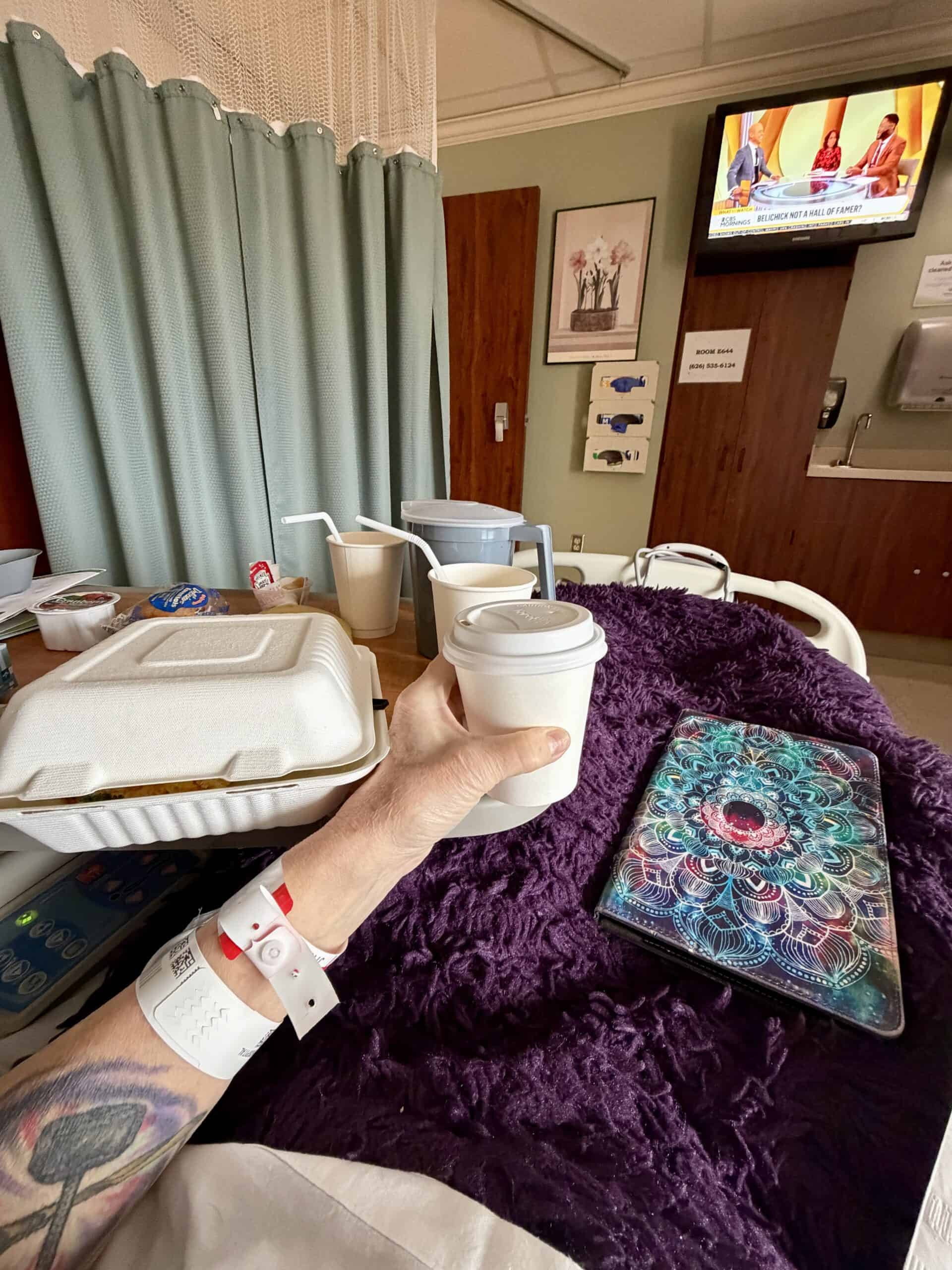
Congratulations on such a good article. I would like to follow your articles regularly. I am a regular writer myself, I am the author of several books. One of them is Dealing with a Narcissist:
A practical guide to understanding, recognizing, and managing relationships with narcissistic people My recommendation for you. With much respect Dr Dusan Ostojic – Amazon book